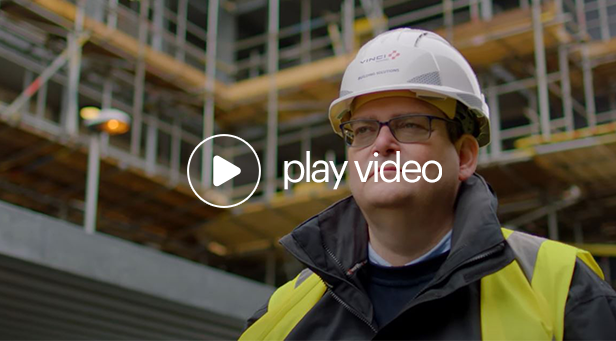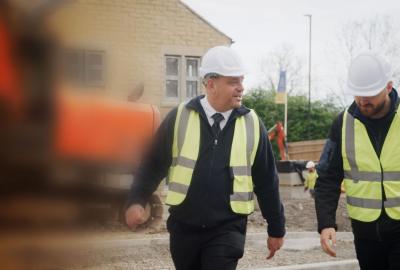real life career change video case studies.
career change advice-
real life career change video case studies.
-
 20 July 2022
20 July 2022moving from aerospace engineering to cyber security.
Purvi's story highlights how sometimes life's hurdles can help push you in the right direction career-wise.
-
 07 July 2022
07 July 2022transitioning from finance to tech
Indiana's background and area of expertise was finance. However the pandemic made her change her mind and seek a new career in tech.
-
 21 July 2022
21 July 2022switching from army life to a meaningful career with the saracens foundation.
Tom was struggling to adjust to life after the army. Find out how his meaningful new career with the Saracens Foundation gave him the wellbeing boost he needed.
-
 18 July 2022
18 July 2022from an unfulfilling corporate role to construction.
Shaun faced a difficult work culture and experienced workplace bullying. An unexpected shift in industry and role completely transformed his mental wellbeing for the better.
your guide
to changing careers.
Changing career is a decision that shouldn't be taken lightly, but whatever your reasons for wanting to do something different, a carefully planned move can turn out to be incredibly rewarding.
If you're stuck in a job that isn't you, or suffering from poor mental health as a result of an unfulfilling role you may well be ready for a career change, but don't necessarily have any idea what else you could do – or where to start?
The good news is that it doesn't always mean you have to take a huge pay cut, or even start at apprentice level. There are many transferrable skills you are likely to possess help you in your next career journey.
Explore our articles, real-life video case studies and advice pieces for all of the inspiration you need to change your career and find your possible.
latest updates
see all career change articles-
 10 April 2025
10 April 2025how AI is reshaping entry level finance jobs and career pathways.
-
 02 August 2022
02 August 2022new job or new career path? how to change career direction.
-
 29 July 2022
29 July 2022how to rebrand yourself for a career change.
-
 29 July 2022
29 July 2022when is it time for a career change?
-
 27 July 2022
27 July 20225 alternative careers for teachers.
-
 21 July 2022
21 July 2022the ultimate guide to transferable skills for a career change.
FAQs
All of your questions about changing careers answered. Can't find what you're looking for? Get in touch for a chat.
-
How do I change careers at 35?
If you’re considering a professional transition at the age of 35, it's a good idea to try and make sure your personal life is in order. From personal admin to moving home for example can easily stray your focus. A secure environment and a loving support network will give you the needed confidence to take a professional risk.
Once you are clear on the direction and the time feels right, do your research to understand the skills and qualifications you’ll need to get you the new role. Identify the transferable skills you have to offer, as well as any credentials you might lack and sign up for classes or online training to fill any gaps.
-
What is a good age for a career change?
Essentially, a career change can happen at any age! Whether you're in your early 20s and wondering if the degree you studied for was the wrong one, or approaching 50 and seeking new challenges, there are opportunities for all. The most important thing in any career step is not how old you are, but what your mindset is and the experiences you can bring to the role. And, whatever stage of your work life you’re currently in, if you're willing to take the time to learn new skills and improve yourself, doors will open to you. We're here to help you find those opportunities.
-
What's the easiest career change?
If you're looking for new challenges in the next chapter of your working life, take a moment to think about the sectors you'd like to work in. If you're in accounting or finance now and want to get out of the office and make a difference, could health and social care be for you? If you're currently in healthcare but want to move out of a patient-facing role, a move into education could help you train the next generation of nurses.
If working around people isn't your thing, consider rapidly growing, in-demand sectors such as construction or IT and tech. If you're someone who doesn't have a Level 3 qualification, there are government-funded places for Level 3 courses in a variety of sectors, giving you the opportunity to gain the skills you need to start a new career.
-
How do I decide what career to switch to?
If you are starting this journey, not knowing where you actually want to go, your first step needs to be an honest assessment of your skills and talents. Spending some time thinking about yourself and what fulfils you will help you to make the right choice. Consider what you've achieved in your current career and be clear about what you like and don’t like about the role.
-
How can I change my career with no experience?
Job advertisements can often focus on technical skills or sector-specific qualifications. These are the skills you sometimes need to get your foot in the door. But what begins to break the pack for shortlisting and interview isn't necessarily industry-specific expertise. Those who progress to higher levels tend to have good soft skills and experiences - the skills that are transferable to any career.
Soft skills can include:
- Leadership skills
- Written and verbal communication
- Time management
- Conflict resolution
- Problem solving
- Positive work ethic
-
What are 3 reasons to change careers?
How do you know you’re ready for a whole career change, rather than just a new job? It’s perhaps one of the most difficult things to face in your working life, but there are significant benefits to switching roles and trying something different, including the major advantage of job satisfaction.
If you’re starting to feel less engaged in your current industry than you previously were, it could be time to begin seriously thinking about the idea of a career change. But how do you know you’ve reached the end of your career road?
The top three reasons to change a career include:
your career goals change
When you started out on your current career path, you might have had a specific idea in mind for your future. These goals change over time - it’s natural - but if you start envisioning yourself at the top of a completely different corporate ladder, then it could be time to start thinking about how you could apply your skills to a new field.
your personal ideals change
If you start to lose interest in the wider industry you work in - and this is notable because you previously paid a great deal of attention - it might become apparent that your career path is no longer the right one for you.
Your commitment to the idea of changing careers could be tested by discussing your concerns with your manager.
you wish you could say you had a different job
If you’re not happy in your current career, you should pay attention to your feelings. When you introduce yourself to someone new and wish you were telling them you did something different, you shouldn’t ignore that. This is particularly true if you start feeling envious about what other people do.
